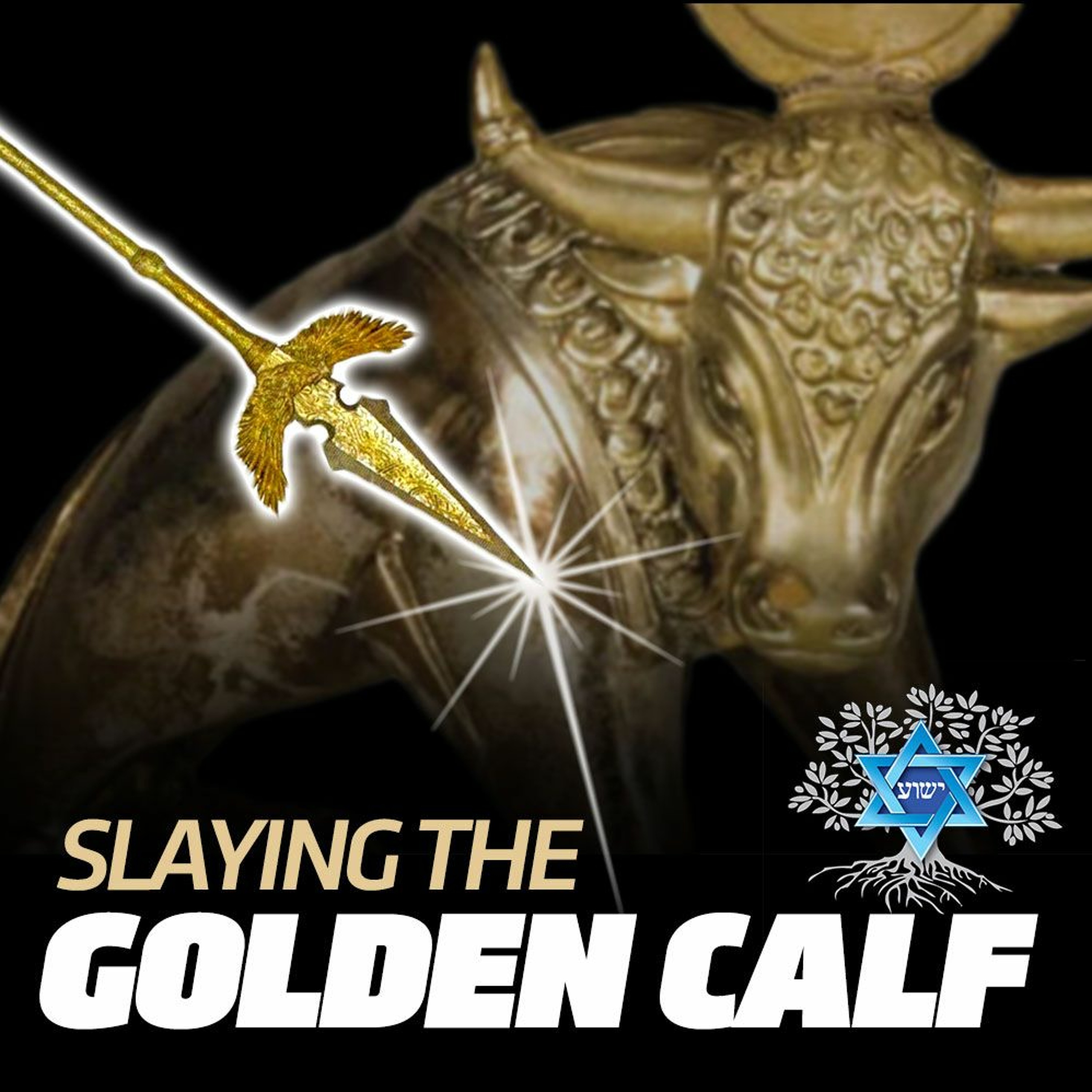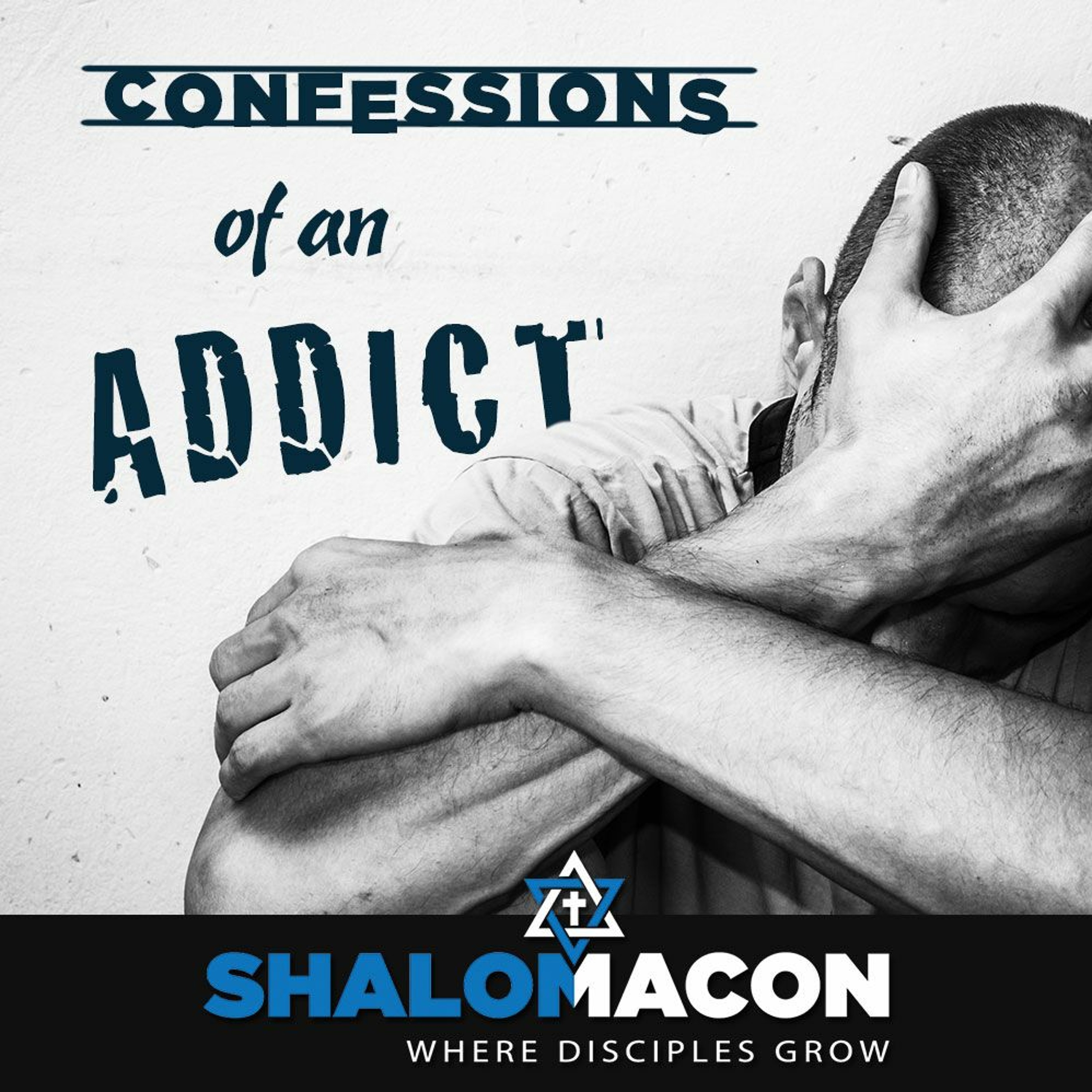Episode Transcript
[00:00:00] I have a question. If you had a dream or vision of being inside a bank with an open vault and a voice from heaven said go, take and spend, how would you understand that dream or vision? Would you act on it? Would you try and see if there might be a deeper meaning behind it, or would you simply ignore it? The Apostle Peter had a similar vision in Acts 10 that is often misunderstood. What does that have to do with our current Torah portion? Stick around to find out in this week's five Minute Torah Shalom. It's great to be back with you here for another exciting episode of the Five Minute Torah. I'm Darren, and before I get into my five Minute Torah commentary, let's cover a few quick facts about this week's Torah portion. This week we're studying the portion of Mike Genesis 41:1 3 through 44:17 and here are the three things that you need to know about it. Number one Pharaoh's dreams God's Prophetic Warning in this week's Torah portion, Pharaoh wakes up one morning disturbed by a set of dreams he had. He demands that someone interpret his dreams, but no one is able when the baker at this point in my editing, I realized my mistake. I said the baker instead of the cupbearer. I'm sure many of you immediately caught it. There's a big difference. The baker was dead and the dead tell no tales. It was the cupbearer that approached Pharaoh, not the baker. My apologies for the slip. Remember that Joseph had interpreted his dream, he tells Pharaoh, and Joseph is released from prison so that he can appear before the king. Pharaoh asks Joseph if he can interpret dreams, and in true humility, Joseph confesses that the interpretation of dreams is something that God does and not him. However, he's willing to listen to Pharaoh's dreams and ask God for the interpretation. Pharaoh tells Joseph his dreams about the seven fat cows being eaten up by the seven emaciated cows, followed by his dream about the seven heads of plump grain being eaten up by the seven heads of sickly grain. After hearing Pharaoh's dreams, Joseph immediately knows what they mean and advises the king on how he should respond to the dreams. Number two Joseph rises to power from slave to savior Joseph tells Pharaoh that there would be seven years of abundance followed by seven years of terrible famine, and that God had given Pharaoh the dreams to prepare for these events. After listening to Joseph's advice, Pharaoh basically says, yeah, you're right, I'm putting you in charge to make sure all of that happens. So Joseph goes from the lowest low to the Highest High. Becoming only second to Pharaoh over all of the land of Egypt. Literally overnight, God positions Joseph to not only be in a position to be reunited with his family, but to also be the savior of the known world. And number three, Joseph's brothers. A secret family reunion. After the seven years of abundance were over and the seven years of famine are well underway, Jacob sends all of his sons but Benjamin to Egypt to buy food. When Joseph's brothers arrived, he immediately recognized them. However, they didn't recognize him. It had been many years and he wasn't the adolescent anymore that they had sold into slavery. It probably didn't help that he looked like an Egyptian and spoke like an Egyptian. I wonder if he walked like an Egyptian as well. Well, Joseph concocted a plan to test his brothers. At first he treated them cruelly, even accusing them of being spies. But he blesses them by secretly giving them back all of the money they had used to pay for grain. His brothers return to their father and they survive on the grain for some time. Eventually, however, they have to return to Egypt for more, but this time with Benjamin as Joseph had required of them. And they are lured right into Joseph's trap. We're left with another cliffhanger this week wondering what Joseph's true motivations plans are as he tells them that he's taken Benjamin as a slave. If you're looking for a place to learn, connect and grow, then Shalom Macon is the place. It doesn't matter where you are in the world. You can find a connection with Shalom Macon through our live services every Saturday and through our private social network we call Shalom at Home. Check us out on YouTube and on our website@shalom macon.org for more information. We look forward to connecting with you and seeing you this Shabbat. This week's five minute tour commentary is called Dreams and Visions Comes from a Five Minute Torah Volume three. Our Torah portion begins exactly two years after Pharaoh's cupbearer was released from prison. If we remember from our previous portion, both the royal cupbearer and the royal baker had been thrown into prison because they had displeased Pharaoh. One night they both had troubling dreams and told them to Joseph who interpreted them. Joseph interpreted the cupbearer's dream as a message that the cupbearer would be restored to his position within three days, Joseph said. The baker's dream, however, signified that within three days he would be executed. Both of these dreams came to pass just as Joseph had interpreted them when the Cupbearer was released. Joseph asked him to put in a good word for him with Pharaoh. The Cupbearer forgot, however, and exactly two years after Pharaoh's Cupbearer was released from prison, Pharaoh woke to a disturbing dream of his own. In fact, two parallel dreams. Pharaoh's first dream was that he was standing near the Nile, and seven plump, fat cows rose up from the river and began grazing nearby. Then immediately, seven other cows, who were emaciated, came up out of the Nile as well. Rather than grazing alongside the first seven cows, they ate them instead. Pharaoh awoke but fell back to sleep. And he had a similar dream as the first. He saw seven ears of plump, healthy grain growing on one stalk. Then immediately he saw seven more ears of grain that were withered and diseased, that sprouted up and consumed the original healthy ears of grain. Pharaoh was quite disturbed by his dreams. He knew that there was significance to them, but he didn't know what they meant. So he called for the magicians of Egypt and all its wise men. Pharaoh told them his dreams, but there was none who could interpret them to Pharaoh. This is Genesis 41:8. It was at this point that the Cupbearer remembered that Joseph had been able to interpret his dream. He told the king about him, and immediately Pharaoh sent for Joseph. When Joseph was brought before Pharaoh, he interpreted his dreams as a warning from God that there would be seven years aplenty followed by seven years of famine. Joseph recommended that Pharaoh put someone wise in charge of Egypt's food supply so that they would be prepared for the hardship during the years of famine. The king put Joseph himself in this position, making him the most powerful man in Egypt, aside from himself. In the apostolic scriptures, we have a similar incident related to dreams that occurred with the apostle Peter. In Acts 10, Peter goes to the house of a man named Simon, falls into a deep sleep, and then he has a dream, or what some say is a vision. In the dream, he sees something like a sheet coming down from the sky that has all kinds of animals in it that the Torah strictly forbids God's people from eating. But then a voice tells him, rise, Peter, kill and eat. This is verse 13. However, Peter replies, by no means, Lord, for I have never eaten anything that is common or unclean. The voice then responded, what God has made clean, do not call common. This happened three times before the sheet was taken back up and Peter awoke. The Book of Acts tells us that when Peter awoke, he was inwardly perplexed as to what the vision that he had seen might mean.
[00:07:31] Within Christian tradition, the interpretation of Peter's dream is obvious. Stop following God's laws regarding food. That's outdated. You've been freed from the restrictions God placed on you to signify you as a holy people. Now you are just like everyone else. If it wiggles, you can eat it. God has given you a smorgasbord, a virtual buffet with no limits. Your calling of holiness has run its course. But there's a problem with this interpretation that no one seems to want to address. What if Joseph had used the same method of interpretation commonly used on Peter's vision in interpreting Pharaoh's dream? It would probably sound something like this. God is telling Pharaoh that from this point forward, cows will not only be carnivorous, but cannibalistic as well. And we will have to begin feeding cows to one another because if they don't eat meat, they will be emaciated and wither away. And as far as grain is concerned, that too will gain the ability to eat and will need to consume their own kind as well in order to be able to survive. We know this is a ridiculous way to interpret Pharaoh's dreams. Dreams are not literal. They use objects, images and themes to represent deeper concepts. Just as Joseph knew Pharaoh's dreams to be a warning about the impending famine, Peter understood his dream as a warning as well. He eventually understood its meaning and he enters into the home of a non Jew for the first time in his life. He provides the interpretation himself, saying, God has shown me that I should not call any person common or unclean. This is verse 28. He goes on to say, truly, I understand that God shows no partiality, but in every nation, anyone who fears him and does what is right is acceptable to him. This is verse 34 and 35. This was the reason Peter was shown the vision. It had nothing to do with food. It set the stage for the new frontier of the disciples mission among the Gentiles. Rather than avoiding contact with Gentiles, which was normal for religious Jews of Peter's day, he would need to embrace them and teach his fellow disciples to do the same. We always need to keep in mind that God's word doesn't change because of a dream or the misunderstanding of one. God's standards revealed to his people in the Torah have not been repealed. And God's standard of holiness doesn't disappear simply because we believe it to be out of fashion. No, Peter's dietary restrictions didn't change, nor did his strict observance of Torah. The radical transformation that took place, however, was that Peter's arms were spread wider to embrace his brothers and sisters he never knew he had. What have you been taught about Peter's vision and how does this teaching affect that or even challenge that? I would love to hear your story. Leave me a note in the comments below. Blessings from Shalom Macon, the place where disciples of Yeshua learn, connect and grow.



